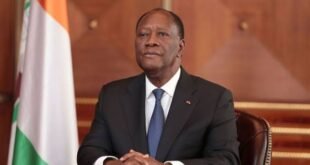Following a meeting between President Bola Tinubu and the leadership of the Nigeria Labour Congress, the federal government agreed with unions to raise Nigeria’s minimum wage to N70,000.
This is a 133 percent increase from the N30,000 that has been in operation since 2018. The President also promised to come up with a plan to help the private sector and local governments pay the minimum wage.
The new minimum wage bill has been submitted to the National Assembly which quickly passed the first, second and third readings in a matter of hours. In addition to raising the national minimum wage, the bill will also reduce the periodic review period from five years to three.
Background of minimum wage
On Monday, June 3, the NLC and the Trade Union Congress began a nationwide strike to press for an increase in Nigeria’s minimum wage.
The union’s proposal is for the federal government to pay N615,000 as the new minimum wage, which is 1950 percent higher than N30,000. However, several meetings between the union, the federal government and the National Assembly have consistently ended in deadlock.
RipplesMetrics analyzed that the minimum wage was reviewed about seven times between 1981 and 2024. However, the findings show that despite increases over the years, wages have declined when compared on a global scale, especially against the dollar market exchange rate.
ALSO READ:RipplesMetrics… Fuel scarcity: How the Nigerian government has subsidized fuel costs for two decades
Is N70,000 enough now?
According to data published by the State Fiscal Transparency, Accountability and Sustainability Performance Assessment (SFTAS), there are about 858,668 civil servants in Nigeria. If each of these workers is paid the minimum wage of N70,000, the total wages paid in a month will amount to N60.107 billion.
In dollar terms, the N70,000 minimum wage is equivalent to $46.62, according to the CBN exchange rate of N1534.56/$1. This is lower than the minimum wage in dollars between 2000 and 2018.
In economic terms, if the average Nigerian earns $70,000 per month, he can spend more than 90 percent of his salary on food in a month, assuming he has no other sources of income.
Data from the National Bureau of Statistics shows that as of May 2024, Nigerians spent N1,041 on healthy food. This means that if a Nigerian eats twice a day for 30 days in a month, he or she will spend N62,460 on food.
Also in transport, the average fare paid by passengers for an intra-city bus journey per stop was N976.08 as of May 2024. This could translate to an expenditure of N39,043 per month if the average Nigerian worker takes two buses to work 20 days a week. More than 50 percent of his wages would be spent on transport.
However, despite the continued upward trend in economic indices, such as inflation rate, dollar exchange rate, transportation and other socio-economic parameters, the minimum wage may become insufficient for the average Nigerian if these indices do not decline in the coming months.
By: James Odunayo
RipplesMetrics: The economic reality of Nigeria’s new N70,000 minimum wage first appeared on Latest Nigeria News | Top Stories from Ripples Nigeria.
 JamzNG Latest News, Gist, Entertainment in Nigeria
JamzNG Latest News, Gist, Entertainment in Nigeria









